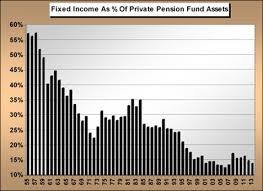
DRAFTING COMMERCIAL CONTRACTS
Course Overview
Drafting commercial contracts effectively from the outset avoids hidden risks and liabilities and ensures that you always achieve your commercial objectives. Even though, the laws of each country are different, there are a lot of similarities in certain areas contract law.
This intensive workshop on drafting commercial contracts will help you to get to grips with all the typical clauses, understand and deal with the potential risks and pitfalls involved as well as giving you the structure you need to draft clear and unambiguous contracts.
The course aims to give delegates a firm understanding of what is required to successfully draft commercial contracts. It looks at planning for the contract, risk and liability, understanding legal jargon and the legal and contractual framework.
The Course is meant for everyone, (Solicitors in private practice, Legal and para-legal executives, Commercial directors and managers, Contracts managers), since it is highly likely that you will be entering into or signing some contract or other be it Rental Agreement, Consultancy Agreement or Employment Agreement. Entering into contract is almost inevitable
Learning Objectives
At the end of the course participants will be able to:
- Demonstrate the skills of effective contract drafting
- Write clear and unambiguous terms
- Specify performance obligations
- Address risks
- Include effective Limitation and Exclusion Clauses
- Avoid drafting pitfalls
Key topics covered
1 THE COMMERCIAL AND LEGAL OBJECTIVES
- Getting started: preliminary considerations
- Drafting precedents
- The wishes and needs of the client
- Four philosophies of drafting
- Case study: the need to draft terms that create mutual understanding and expectations
- Rectification
- Mutual understanding: plain intelligible language
- Obscure words
- The uses of formulae to clarify commercial objectives
2 TERMS OF THE CONTRACT
- Time: is it to be or not to be of the essence
- Positive obligations: firm undertakings or endeavors
- What is the distinction between ‘best endeavors’ and ‘reasonable endeavors?
- Other cases distinguishing between reasonable endeavors and best endeavors
- Are there any problems in enforcing endeavors clauses?
- Third party rights: should these be permitted, restricted or excluded
- Controlling assignment
- The creation of a trust of the benefits arising from a contract
- The Contracts (Rights of Third Parties) Act 1999. Termination provisions: the choices to be made
- Clauses providing for termination for breach of contract: the attitude of the courts
- Material breach; substantial breach; repudiation
- The nature of the breach
- Material breach
- Termination in relation to other remedies
3 STRUCTURING THE CONTRACT
- The title and the description of the parties
- The recitals
- Recitals and the matrix theory
- The terms of the contract
- The signature: simple contract or execution as a deed
- Pre-contractual arrangements
- Post-contractual arrangements
- What is the effect of an ‘entire agreement’ clause
- The Court of Appeal cases
- What is a framework agreement?
4 HOW THE COURTS WILL INTERPRET WHAT IS WRITTEN
- Ambiguities, absurdities and technicalities
- The contra proferentem rule
- The interpretation of indemnities
- Consequential’ loss or damage
- The knock-on effect of amendments
5 VALID AND INVALID TERMS
- The rule against penalties
- Unfair terms: some common law principles
- Unfair terms: the scope of the Unfair Contract Terms Act
- Unfair terms: some cases on the test of reasonableness
- Unfair terms in consumer contracts
- Other tests of validity under statute
- The Human Rights Act

